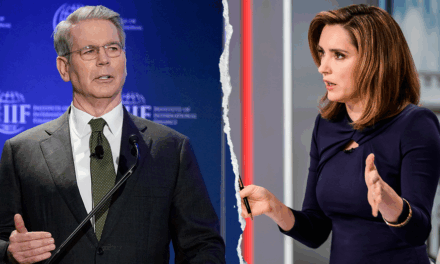In a recent profile published by New York Magazine, Alex Soros, the heir to the philanthropic legacy of his father, billionaire George Soros, finds himself at the center of controversy. This in-depth article scrutinizes both his leadership qualities and the direction he aims to take the Soros Fund Management and Open Society Foundations, and questions whether he is the right person to lead such a storied philanthropy.
Alex Soros has long been an active player in the world of philanthropy and political funding, often stepping into the limelight of progressive causes. With a mission grounded in social justice, human rights, and democratic governance, the organizations he oversees have made transformative contributions to various causes. However, as his profile reveals, there are significant voices casting doubt on his ability to sustain and enhance the legacy established by his father.
The profile portrays Soros as a challenging figure within the philanthropic sector, noting that he is viewed by some as not merely an inheritor of a legacy but as someone grappling with the challenges of leadership. Critics argue that his temperament and decision-making style make collaboration difficult, which could hinder the effectiveness of the foundation’s initiatives.
Moreover, the piece highlights Soros’s ambitious goals but raises important questions about the execution of these goals amidst the complex landscape of modern philanthropy. With many nonprofit organizations increasingly confronted with the need for strategic adaptability, the pressure mounts on leaders like Soros to provide visionary yet pragmatic direction.
One of the key issues explored in the article is the generational shift within philanthropy as Alex Soros takes the helm. It’s a transition that comes with both expectations and challenges, as he attempts to shape the foundation’s approach to issues that resonate with younger generations. Soros is quoted expressing his commitment to effectively address contemporary challenges, like climate change and racial inequity, via innovative philanthropic strategies.
However, the skepticism surrounding his leadership is not entirely unfounded. The very nature of the Soros family name evokes strong opinions across the political spectrum, which complicates public perception and reception of their philanthropic efforts. Critics in political circles often paint George Soros as a controversial figure, and his son does not escape this narrative. The profile notes that Alex’s reputation is becoming increasingly intertwined with the polarized sentiments surrounding his father’s legacy.
Alex Soros’s reported difficulties in steering conversations within the foundation point to a broader issue within major philanthropic organizations: the balance between vision and practicality. While Alex aspires to introduce fresh approaches and consider diverse perspectives, some insiders suggest that he struggles to consolidate different voices into a coherent and actionable strategy.
The concerns highlighted in the profile reflect sentiments in the philanthropic community regarding the importance of leadership style and stakeholder engagement. As foundations are often required to align disparate interests, effective leadership means fostering a culture that values input from various sources, while also decisively navigating toward a clear mission.
While Alex Soros acknowledges the weight of the family legacy, his strategy, as outlined in the profile, incorporates a blend of tradition and innovation aimed at addressing issues that require immediate attention. He aims to invigorate the foundation’s mission through a focus on community-building, emphasizing grassroots initiatives that involve the very individuals they seek to serve.
In light of criticisms that labeled him as having a challenging personality, Soros responded by advocating for the necessity of diverse opinions in the decision-making process. He stresses that philanthropy thrives on collaboration and dialogue, although building these relationships may not come easily to him. It is a crucial component, especially as the philanthropic landscape evolves.
The profile also places a spotlight on the rapid transformation occurring within philanthropic circles. As younger actors in philanthropy rise, their priorities tend to differ significantly from those of previous generations. Alex Soros’s youth positions him uniquely to resonate with this demographic, particularly by championing causes that target the new wave of social justice movements, but questions linger about his effectiveness in mobilizing support across different age groups.
Furthermore, the piece delves into his public persona, which, according to sources, oscillates between being overly ambitious and yet untethered. This complexity draws mixed reactions, as while many appreciate his zeal for activism, others remain wary that such fervor might overshadow prudent, thoughtful governance of the foundation’s resources.
Lastly, the article reflects on the substantial pressure Alex faces as he attempts to carve out his path apart from his father’s monumental reputation. The public’s expectation is for him to harness inherited resources for progressive changes, while simultaneously balancing the fondness for his father’s legendary status. The nuance of this task should not be understated, as he navigates being judged against both results and legacy.
This profile, rich in detail, provides a scrutinizing lens on Alex Soros as he emerges as a prominent figure in philanthropy. Moving forward, he will need to address these concerns and adapt his approach in such a way that honors the Soros family history while also leading with a new, more effective vision for the future. The stakes are high, and whether he rises to meet them may ultimately determine not just his success, but the impacts of the projects and initiatives undertaken by the foundations under his stewardship.
As the landscape of philanthropy continues to evolve, the role of emerging leaders like Alex Soros will be pivotal. This discussion is vital, not only for those in positions of power but for the communities seeking to benefit from philanthropic efforts. The implications of leadership styles can resonate far beyond boardrooms and affect real-world outcomes for numerous causes.
With ongoing scrutiny and expectations looming large, the future will reveal if Alex Soros can effectively navigate these challenges and prove to his detractors that he has what it takes to lead one of the most influential philanthropic entities in the world. Only time will tell if he is deemed the right leader for the Soros legacy or if he will remain a controversial figure within the philanthropic sector.
































